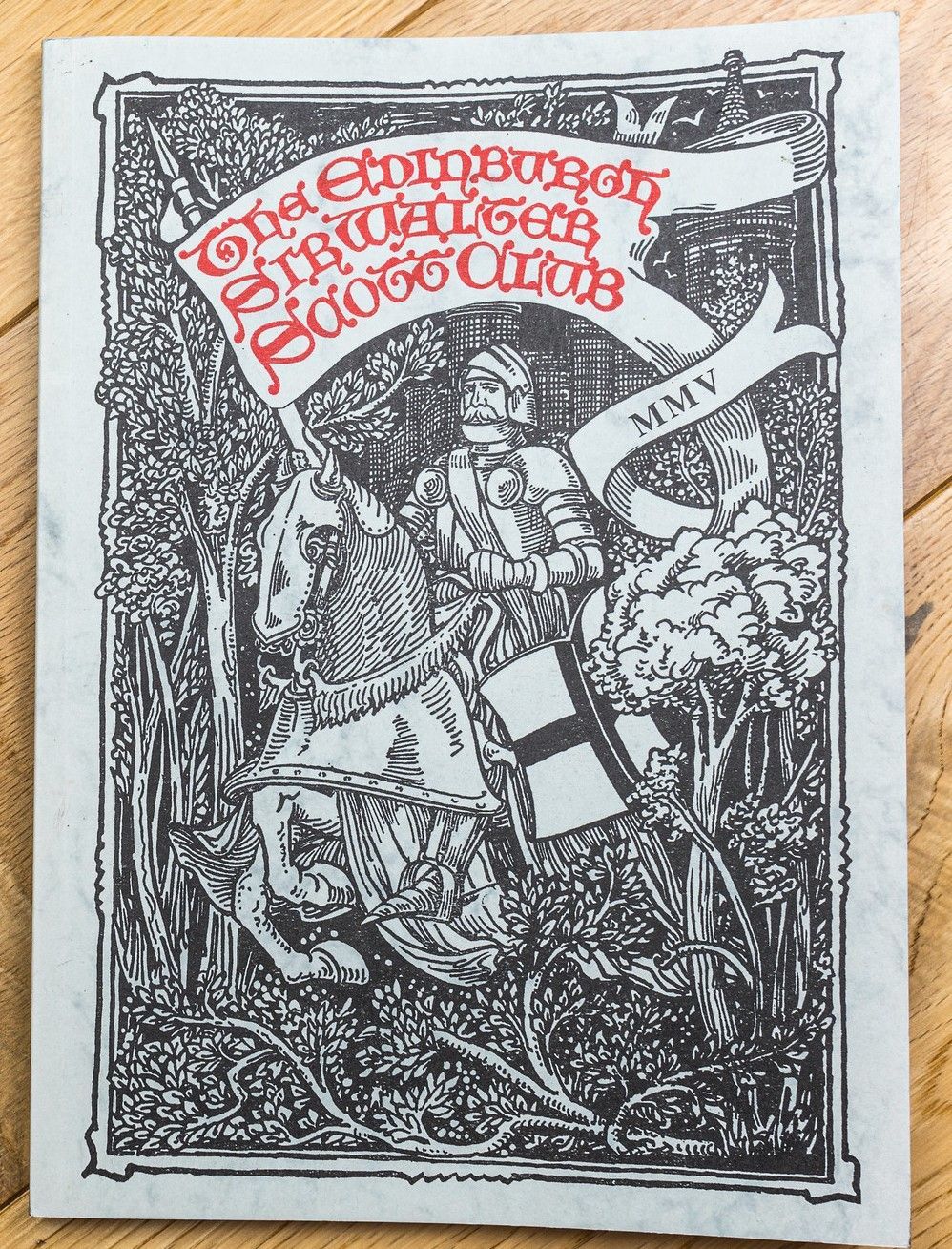Beyond the Border: Sir Walter Scott's Minstrelsy
Tuesday 27th April 2004
Summary of the Performance:
The event was designed as a musical and narrative presentation, incorporating both storytelling and live music. The performance aimed to explore Walter Scott's Minstrelsy of the Scottish Border and its impact on the study and preservation of Scottish ballads. The presentation included guitar arrangements, some based on traditional tunes like Niel Gow's Lament for His Second Wife, which would have originally been played on instruments like the lute or guitar in Scott’s time. The focus was not only on the historical context of these songs but also on the way these ballads were preserved and passed down through oral tradition.
Key points:
- Walter Scott’s Background and Connection to Ballads:
- Walter Scott’s early life was deeply influenced by the lore and ballads of the Scottish Borders, which were part of his childhood experience.
- His grandmother’s tales of Border feuds and his early immersion in ballads like those found in Ramsay’s Tea-table Miscellany played a major role in shaping his future work as a ballad collector.
- Ballad Collection and Performance:
- Scott’s method of collecting ballads was deeply immersive. He would travel, sometimes horseback, to gather songs, often with fellow Borderers like William Laidlaw and John Leyden.
- He made a point of collecting from living traditions, even if this meant hearing incomplete or evolving versions of ballads.
- Scott would often use notched sticks to record song versions while on these tours, relying on his exceptional memory to retain the ballads he collected.
- The Importance of The Minstrelsy Collection:
- Scott’s Minstrelsy of the Scottish Border (1802) remains one of the most significant collections of Scottish ballads. It was ground-breaking in its attempt to preserve these oral traditions.
- The collection not only documented the lyrics but also sparked a global interest in Scottish folk music and balladry.
- Scott’s ballads also provided a window into the emotional and historical context of the time, offering insights into the social, political, and personal tensions of the Scottish Borders.
- Legacy of Ballads:
- Even after centuries, ballads such as The Dowie Dens of Yarrow and Lord Randall continue to resonate, with versions being passed down and recorded across generations, even in places like Newfoundland and Appalachia.
- The ballads Scott collected are often incomplete, with multiple versions existing, but they retain a core emotional and narrative structure that transcends regional differences.
- Cultural Impact:
- Bennett and Stanage emphasize how these songs were not just for performance but were part of an ongoing cultural exchange, often discussed, reinterpreted, and passed down through oral tradition, even into modern times.
- They also reflect how, even when versions of the songs differ, the underlying themes of love, betrayal, tragedy, and heroism remain consistent.
Interesting Points:
- Scott's Collecting Method: His reliance on memory and informal, practical methods of recording songs (using notched sticks instead of written notes) shows the deeply immersive and personal nature of his ballad collecting. This method contrasts with modern, more structured approaches to research and data collection.
- International Influence: It is fascinating how these ballads transcended borders—both literal and cultural—making their way into other cultures and regions, even being adapted to local contexts (e.g., "Lord Randall" becoming "Lord Donald" in Scotland and North America). This speaks to the universal appeal of these songs and their emotional resonance across different times and places.
- Cultural Preservation: Scott’s work not only preserved ballads that might have otherwise been forgotten but also gave them new life, allowing them to be appreciated in contemporary contexts like folk music festivals and even in academia today.
In summary, Bennett and Stanage's talk explored the enduring legacy of Sir Walter Scott's Minstrelsy, showcasing its significant role in preserving Scottish cultural heritage and its continued influence on folk music and ballad scholarship worldwide. The performance also highlighted how ballads remain vital to cultural identity and collective memory, even as they evolve over time.
Download the [transcript] or read the [bulletin]

Download the [transcript] or read the [bulletin]


